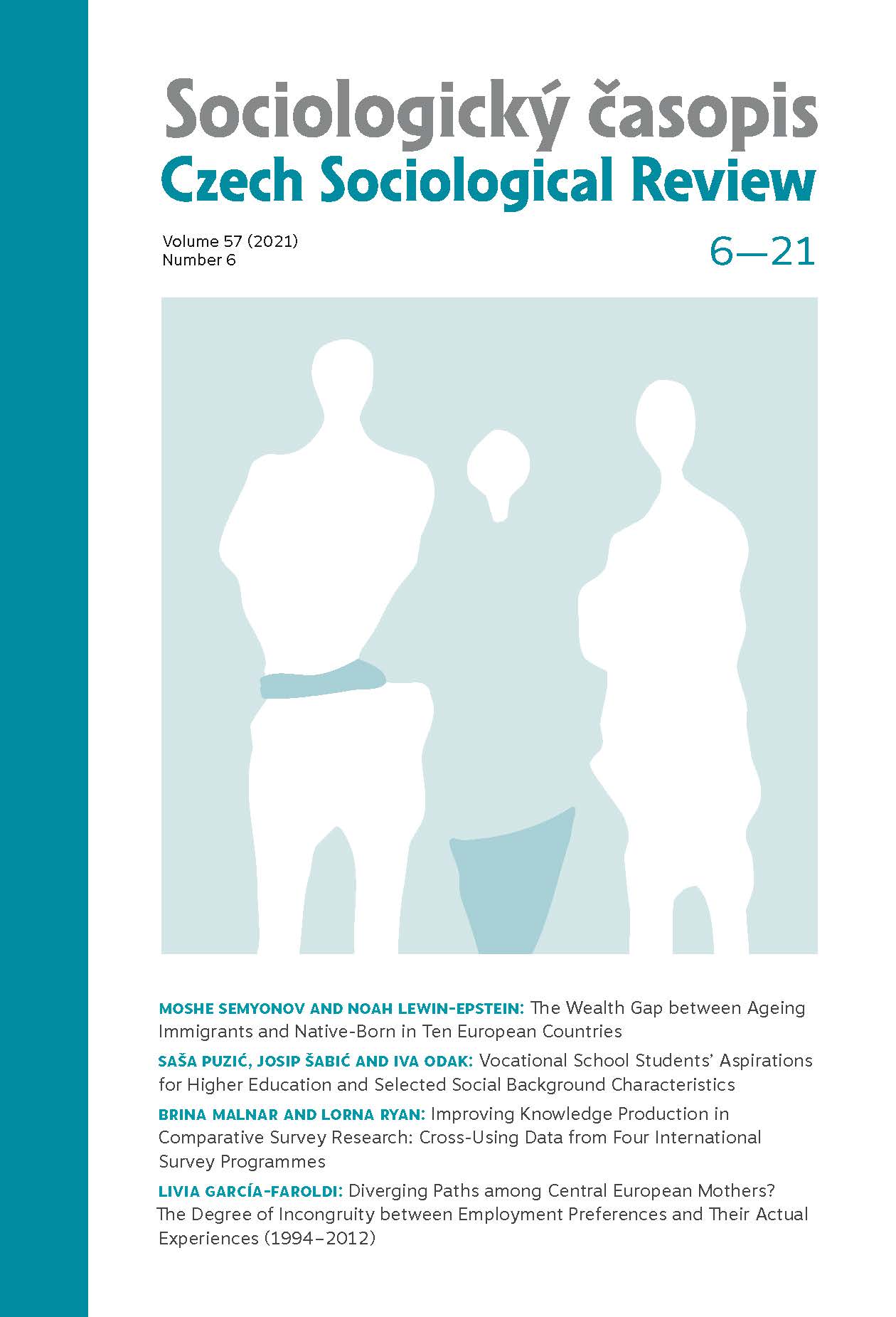Diverging Paths among Central Eastern European Mothers? The Degree of Incongruity between Employment Preferences and Their Actual Experiences (1994–2012)
Diverging Paths among Central Eastern European Mothers? The Degree of Incongruity between Employment Preferences and Their Actual Experiences (1994–2012)
Author(s): Livia García-FaroldiSubject(s): Family and social welfare
Published by: AV ČR - Akademie věd České republiky - Sociologický ústav
Keywords: work-family conflict; gender roles; refamilialisation; fertility; post-communism
Summary/Abstract: This paper examines the congruity between mothers' preferences and actual experiences when raising preschool children, using data on mothers of reproductive ages (18–49) from the Czech Republic, Hungary, and Poland from the International Social Survey Programme (ISSP) (1994, 2002, and 2012). The findings show that (i) with one exception, in all the countries and years, mothers whose preferences were congruent with their actual employment statuses outnumbered those whose preferences and employment statuses were incongruent; (ii) whereas Czech mothers improved their situations during the period (the congruity increases), Polish mothers - who began the period with the highest congruity - experienced a decrease in congruity, while Hungarian mothers showed the lowest congruity and saw a slight improvement in their situations (they achieved more congruity); and (iii) women who had their children during the communist regimes were more likely to experience incongruity because they worked more than they desired to, while women who became mothers during the post-communist period were more likely to experience congruity when they stayed at home, but they were also more likely to experience incongruity because they were inactive and considered working desirable. Therefore, the results confirm similar trends and diverging paths among the three countries. The high degree of incongruity between preferences and actual experiences is a sign of the problems faced by mothers attempting to reconcile work and family life and also impacts other phenomena, such as female employment, gender equality and fertility.
Journal: Sociologický časopis / Czech Sociological Review
- Issue Year: 57/2021
- Issue No: 6
- Page Range: 707-736
- Page Count: 30
- Language: English

